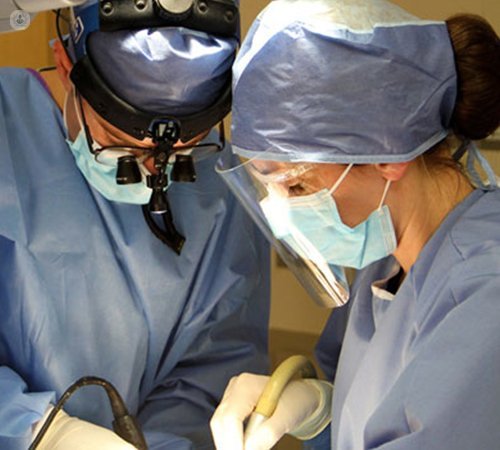When should I go to an oral surgeon?
Written by:Oral and maxillofacial surgeons are specialists in the treatment of different diseases, conditions and problems, not only in the oral cavity but also in the face, head, and neck.

What does the oral and maxillofacial specialty concern?
Oral surgeons have a unique set of knowledge and skills that enable them to focus on the complexity of the anatomical facial structures, specifically the mouth and jaw and involves the diagnosis, surgery and treatment of diseases, injuries and defects involving the mouth, gums and teeth. This specialty combines dental, medical and surgical knowledge.
Problems that a maxillofacial surgeon treats:
Oral surgery and implantology
This includes any surgical procedure performed in the mouth and immediate area, such as the minor and major salivary glands. The most common are the simple and complex extractions like wisdom teeth, retained canines or supernumerary teeth. Important procedures include dental implants and surgery of bone grafts or biomaterials when there is bone loss.
Dentofacial deformities
In collaboration with orthodontists, maxillofacial surgeons deal with problems of occlusion and aesthetic issues that are due, not only to tooth alterations but also, to maxillomandibular (upper and lower jaw) problems that require corrective surgery to the bony bases; so-called orthognathic surgery.
Head and neck tumours
Benign and especially malignant tumours are treated by maxillofacial oncology sections in large medical centres and hospitals. Treatments include surgery to remove the tumour and its possible extension to the neck, as well as reconstruction of facial defects through microsurgery and free autologous tissue transfer of great complexity.
Fractures of the facial bones
Maxillofacial traumatology treats any fracture of the facial bones, including isolated fractures of the orbital rims, the floor of the orbit, the cheekbone, upper jaw and mandible. It also treats major trauma or panfacial fractures, which affect almost all bones in the face.
Other treatments
Specialists cover such problems as temporomandibular joint disorder or surgery in children with malformations, including craniofacial malformations and cleft lip and palate, among others.
When should I see an oral and maxillofacial surgeon?
Patients are referred to see an oral and maxillofacial surgeon if their general dentist or another specialist practitioner believes they could benefit from the surgeon's advanced knowledge.


